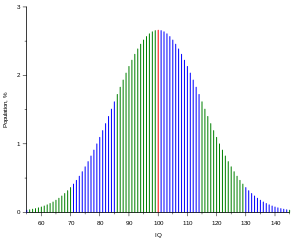 Image via Wikipedia
Image via WikipediaIn studying psychology at university level, you are encouraged to read widely and to consult different types of material. The things we suggest reading can include journalistic treatments of psychological matters, such as in an online news service or a pop science book. What your lecturers expect in a summative essay, though, is something a bit more academic. Writing in an academic style can be dull, but it doesn't have to be. What academic writing should always be is concise, intelligent, objective and well-referenced. We've already discussed a lot of these issues, but here are a couple more thoughts.
Firstly, when you read a 'journalistic' source, you will often find that the author takes some time to set the story in historical context. In academic writing, it isn't always a good idea to go too far with this, mainly because it takes up space which you could turn to better use in making your main arguments. If you're writing an essay on sex differences in intelligence, for example, you don't need to itemise all the historical developments in IQ testing. You will probably find that this information can be summarised in a line or two.
Another tip is to aim for some sort of striking introduction. You could start your essay by saying something like 'Psychologists have debated sex differences in intelligence for many years', but I might yawn. Why not choose an opening that shows that you understand the basic point and are ready to take it further? 'Although sex differences in intelligence have been of concern to psychologists for many years, there is beginning to be a consensus that any such differences are more likely to obtain in specific rather than general intelligence.' Immediately you have made a statement of interest, and can begin to build an argument.
Another difference between 'pop' sources and academic ones is fairly minor, but contributes to the impression your assignment makes. Language like 'the English psychologist Dr Charles Fernyhough, from Durham University' may go down well with a general readership, but in an academic context it is a waste of words. Chatty though we (hopefully) are on the corridor, in the world of summative assignments and journal articles (which should always be the model for your academic writing), we are not on first name terms. If you want to cite me, Fernyhough (2010) will do just fine.
![Reblog this post [with Zemanta]](http://img.zemanta.com/reblog_e.png?x-id=8f27a03f-83ad-4dee-9480-11a8c91dedc9)



These posts are incredibly handy - thank you very much!
ReplyDeleteI agree! I was really stressed before I read these and they've given me a lot more focus. Thanks!
ReplyDeleteVery pleased to hear they are useful! If there are any topics you would like to see covered here then please let me know.
ReplyDelete